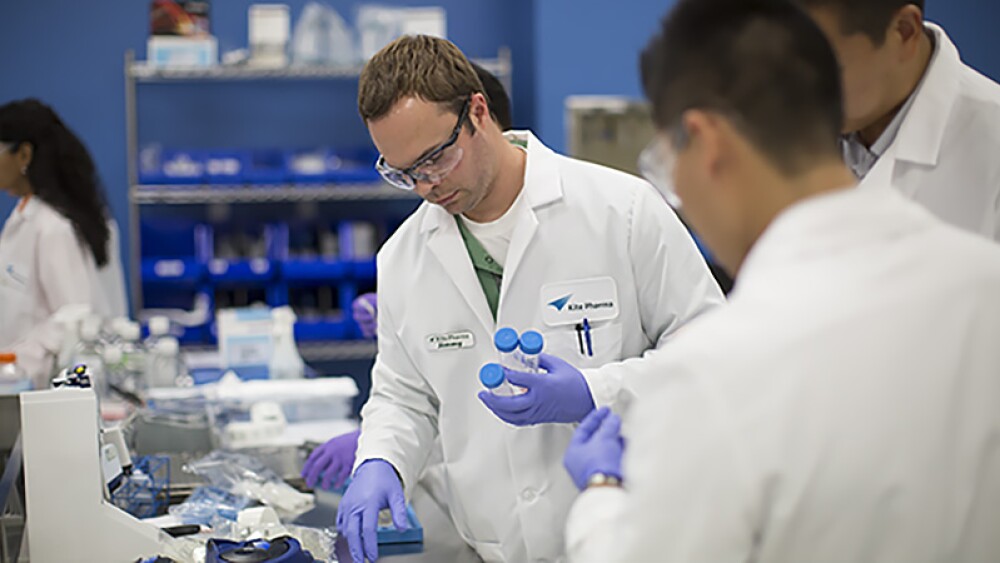May 8, 2017
By Mark Terry, BioSpace.com Breaking News Staff
Santa Monica, Calif.-based Kite Pharma undoubtedly wanted to focus on its progress in bringing axicabtagene ciloleucel to market this year, but it was overshadowed by a report of a patient death in its clinical trial.
At the first-quarter conference call, Kite said they had informed the U.S. Food and Drug Administration (FDA) of a death in late April in the company’s CAR-T program. This alarmed investors because one of Kite’s primary competitors, Juno Therapeutics , recently shuttered one of its CAR-T cancer treatments, JCAR015, where a total of five patients have died from cerebral edemas, a side effect of the CAR-T treatments.
During the conference call, Kite’s chief medical officer, David Chang, said, “It took about two days of progressively worsening neurological events. In this time, the patient’s overall condition was deteriorating. This patient had refractory non-Hodgkin lymphoma. At the time of enrollment he had explosive disease that was rapidly progressing and had a lot of symptoms from the tumor.”
At the company’s first-quarter report, it indicated revenues of $9.8 million for the quarter, up from $5.1 in the first quarter of 2016. Total operating expenses were $101.7 million, up from $51.1 in the first quarter. This indicates a quarterly net loss of $90.4 million, compared to a net loss of $43.9 million in the first quarter of 2016.
“Kite is intensely focused on bringing axicabtagene ciloleucel to market in 2017,” said Arie Belldegrun, Kite’s chairman, president and chief executive officer, in a statement. “Our preparation for the potential commercialization fo the first CAR-T therapy in aggressive non-Hodgkin lymphoma began two years ago. With the team and infrastructure we now have in place, we are confident in our readiness to deliver upon potential approval in the U.S. and expect to file for approval in Europe in the third quarter of this year. We are also keeping an eye toward future growth with additional indications across the KTE-C19 program and development of earlier stage product candidates, including KITE-585, which we believe has the potential to become the next significant opportunity for Kite.”
CAR-T therapy essentially requires taking T-cells from the cancer patient’s blood, reengineering them to specifically attack the tumors, and reinfusing them back into the patient’s body. Safety issues have been a problem, primarily from so-called cytokine storms, where the patient’s immune system becomes overstimulated and attacks the body. Both Juno and Kite believe they’ve found ways around the reaction, but investors aren’t as confident.
Kite Pharma took a hard drop at the news. Shares traded on May 5 for $81.60, but are currently trading for $71.70.
In an email to Endpoints News’ John Carroll, the company said, “We don’t see any safety concerns. All axi-cel and KTE-C19 development studies continue as planned. As a reminder, overall incidence of KTE-C19 related grade 5 events stands at 2 percent in approximate 200 patients treated in our study supports the benefit of axi-cel and KTE-C19. If patients treated in the NCI studies are included, over 300 patients have been treated with CTE-C19.”





